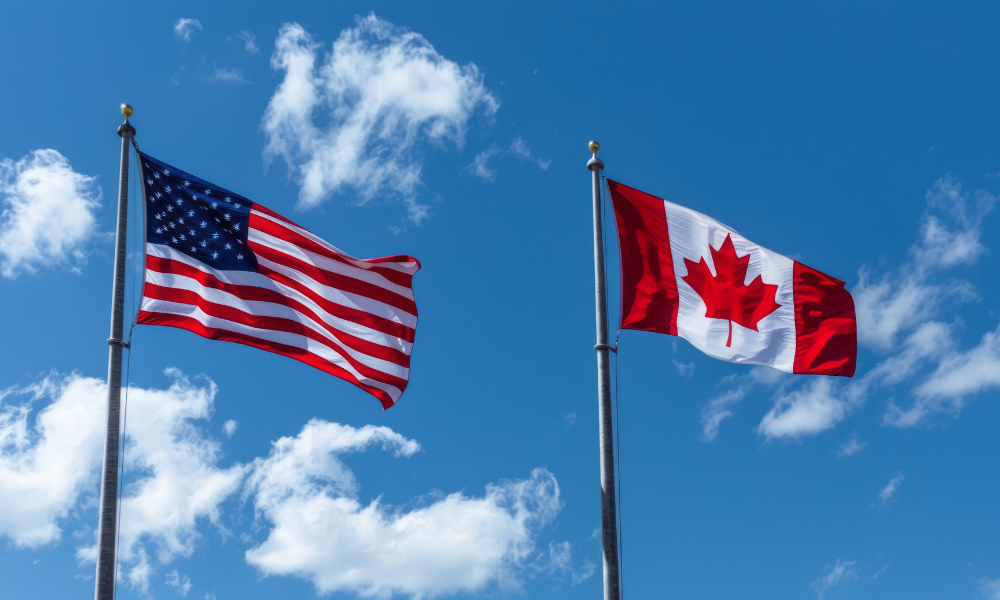Canada braces for potential US trade tariffs as Trudeau outlines a phased response plan

US President Donald Trump stated that the United States does not need to import Canadian oil, gas, autos, or lumber during a speech at the World Economic Forum in Davos.
Speaking via video conference to an audience of global political and business leaders, Trump declared, “We’re going to be demanding respect from other nations … Canada has been very tough to deal with over the years.”
He added, “We don’t need them to make our cars, and they make a lot of them. We don’t need their lumber because we have our own forests. We don’t need their oil and gas; we have more than anybody.”
Trump reiterated his suggestion that Canada could join the United States, presenting it as an alternative to potential sweeping tariffs. He threatened to impose 25 percent tariffs by February 1, a warning that has heightened concerns within Canadian business and political circles.
Ottawa has cautioned that any such move will provoke a sharp response.
The United States’ reliance on Canadian exports has defined the two nations’ trade relationship.
According to the Government of Canada, 60 percent of US crude oil imports in 2023 originated from Canada, exceeding the combined total from all other countries.
Additionally, Canada supplied 99 percent of US imported natural gas.
The Canadian Vehicle Manufacturers Association reported that 92 percent of Canada’s motor vehicle exports in 2022 were destined for the US Components for these vehicles often cross Canadian, US, and Mexican borders as many as eight times during production.
Canada’s forestry exports, valued at $45.6bn in 2022, predominantly went to the US, as reported by Statistics Canada.
In total, $3.6bn in goods cross the Canada-US border daily, supporting 3.7 million jobs across both countries, according to the Canadian Chamber of Commerce.
Trade experts warn that a shift in US trade policy could lead to significant disruptions.
Scott Crockatt, vice president of the Business Council of Alberta, called the proposed tariffs “devastating” for Canada.
David Adams, CEO of Global Automakers of Canada, stated that the tariffs could lead to auto production facility closures.
Prime Minister Justin Trudeau addressed the potential trade challenges, asserting that Canada is “ready to respond in a strong way, but in a way that will be stepping up, gradually.”
According to a senior government source speaking to CTV News, Canada’s retaliation plan would unfold in three phases.
The first phase would impose tariffs without consultation on specific US goods, such as Florida orange juice and Kentucky bourbon. Canadians would also be encouraged to avoid purchasing these items.
The second phase would follow a two-week consultation period and target $37bn worth of US goods.
Depending on the scope of US tariffs, a third phase could involve consultations on tariffs for an additional $110bn in American imports.
Trudeau stated that if a trade war occurs, “two things will happen.” Canada will deliver a “strong, robust response,” and “prices for American consumers on just about everything will go up.”
He suggested that Trump’s economic goals would require continued access to Canadian resources, describing Canada as a “reliable and trustworthy partner.”



